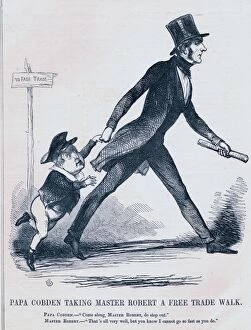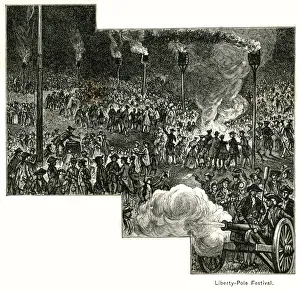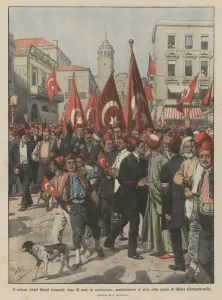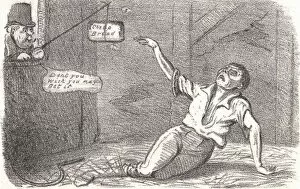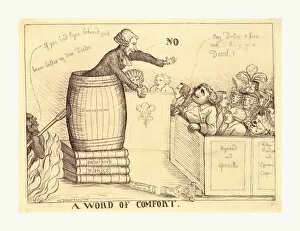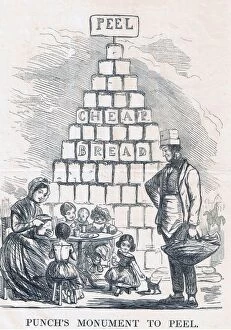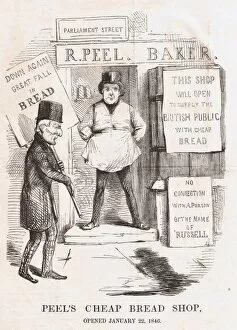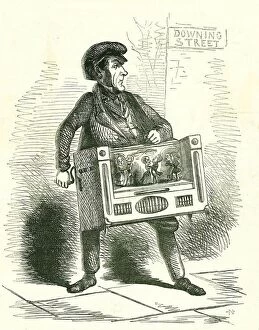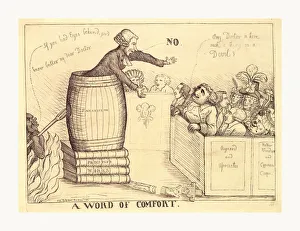Repealed Collection
"The Repeal: A Historic Turning Point in British Trade Policies" In the early 19th century
All Professionally Made to Order for Quick Shipping
"The Repeal: A Historic Turning Point in British Trade Policies" In the early 19th century, the Corn Laws were introduced to shield British farmers from foreign competition. However, as time went on, these protectionist measures began to stifle economic growth and hindered international trade. Fast forward to March 16, 1766, when a significant event took place - "The Repeal" or "The Funeral of Miss Ame-Stamp. " This lithograph captured the momentous occasion when the Stamp Act was abolished in America. The act had imposed heavy taxes on various documents and caused widespread discontent among American colonists. Just two days later, on March 18, another lithograph called "Goody Bull or the Second Part of the Repeal" emerged. It depicted further celebrations surrounding this pivotal repeal. These events marked a turning point in history as they symbolized resistance against oppressive taxation and paved the way for greater freedom and autonomy. Moving forward to more recent times, Sultan Abdul Hamid's resignation after ruling for an impressive 32 years brought about constitutional changes and manifestations of joy among his people. This colorful litho showcased a momentous shift towards democracy. But let us not forget Benjamin Franklin's influential role during times of turmoil. In an engraving by David depicting him presenting his opposition to taxes in 1766, Franklin became a prominent figure advocating for justice and fair treatment. Another crucial milestone occurred with Robert Peel's leadership as Prime Minister during the abolition of Corn Laws in 1846. These laws had initially been implemented back in 1815 to protect British farmers from foreign competitors but ultimately hindered progress. Peel's decision marked a triumph for free trade advocates like Richard Cobden who fought tirelessly for their repeal. To commemorate this achievement, Punch magazine created a monument dedicated to Robert Peel titled "Punch's Monument, " serving as a reminder of how one man's determination can reshape an entire nation's economic landscape.

